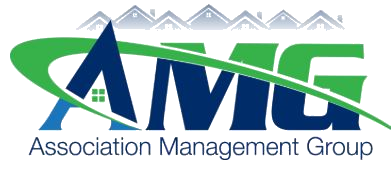The Insidious Effects of Hurrying in Community Association Management
/In today’s fast-paced world, the pressure to accomplish more in less time has created a culture of “hurry sickness,” a term coined by cardiologists Meyer Friedman and R.H. Rosenman in 1974. This condition, characterized by chronic rushing, impatience, and a sense of time scarcity, poses serious risks to both individual health and organizational success. For community association managers, board members, and industry professionals, the impacts of hurry sickness can be especially damaging.
Why Hurry Sickness Matters in HOA Management
In the community association management industry, where decision-making, communication, and problem-solving are central, hurry sickness can lead to costly mistakes. A rushed response to a maintenance issue or an unreviewed vendor contract might save time initially, but the long-term consequences—errors, dissatisfied residents, or financial missteps—can outweigh the short-term gains.
Hurry sickness also affects relationships, a cornerstone of effective HOA management. Managers who are always rushing may come across as impatient or dismissive, unintentionally alienating board members or homeowners. This not only erodes trust but also undermines collaboration, which is critical for a thriving community.
On a personal level, hurry sickness leads to burnout. Managers and board members juggling multiple responsibilities often sacrifice self-care—skipping meals, forgoing exercise, or losing sleep—all in the name of productivity. Over time, this takes a toll on mental and physical health, resulting in decreased performance and satisfaction.
A Story from the Field: The Rushed Reserve Study
A seasoned HOA manager, Sarah, received a request from her board to recommend a reserve study vendor on a tight deadline. Feeling pressured to act quickly, she chose a company she had heard about but failed to carefully review their qualifications thoroughly. The study was completed, but it underestimated the association’s funding needs. A year later, the board faced an unexpected shortfall, leading to a special assessment that angered homeowners.
This situation, caused by haste, could have been avoided if Sarah had paused to more thoroughly vet vendors and discuss options with her board. By slowing down and prioritizing due diligence, she could have saved the community from financial stress and frustration.
Practical Strategies for Managers and Boards
1. Implement Prioritization Tools: Use methods like the 4D system—Do, Defer, Delegate, or Delete—to focus on what truly matters. Discuss priorities with your manager or board to ensure alignment.
2. Build Buffer Time: Schedule time for deep work and reflection. Block out parts of your calendar to avoid back-to-back meetings and give yourself time to think critically.
3. Practice Mindfulness: Take a few minutes each day to practice mindfulness techniques, such as deep breathing or focused attention. These small breaks can reduce stress and improve focus.
4. Pause Before Saying Yes: Evaluate whether a task aligns with your goals or whether it can be delegated. Write down the consequences of agreeing to additional tasks and discuss them with your manager to avoid overloading yourself.
5. Strengthen Collaboration: Managers and boards should work together to create realistic plans for handling responsibilities. If you need help developing such a plan, talk to your manager or email me for more guidance.
Take Action Now
Hurry sickness is not just an individual issue—it’s a cultural challenge in industries like community association management, where speed is often equated with success. By slowing down and adopting thoughtful strategies, managers and board members can improve decision-making, strengthen relationships, and achieve better results for the communities they serve.
If you’re feeling the pressure to always hurry, remember: it’s not about how fast you go, but how effectively you use your time. Let’s work together to create a more balanced, productive approach to HOA management.


















